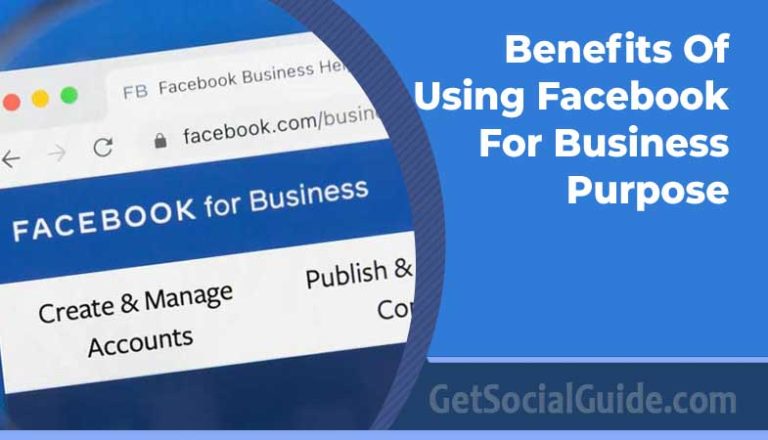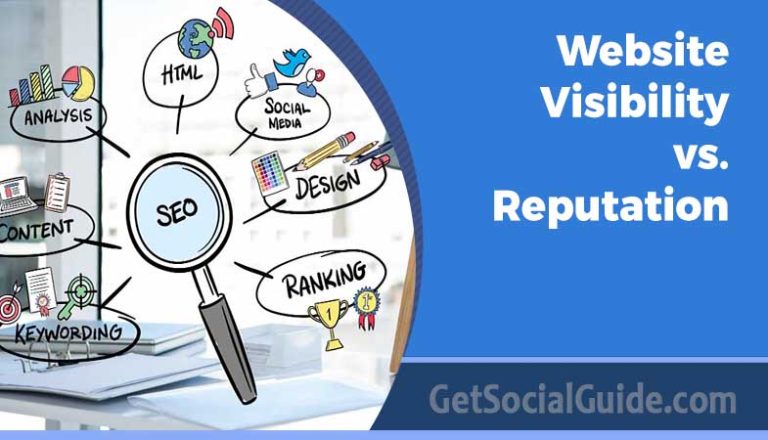Amateur Bloggers Mistakes – Beginners Guide 2024
As an amateur blogger, you’re sure to make a slew of mistakes. It’s just how things are. No blogger is perfect right out of the gate. But don’t panic; even expert bloggers make blunders now and then. You’ll eventually become the blogger you want to be if you learn from your mistakes and attempt not to repeat them. On their blogs, new amateur bloggers make several errors. Some of them are unknown to them, and some of them may be the result of neglect. Mistakes, no matter what they are, are always mistakes. Whatever the case may be! The only thing that matters is how they recognise their errors and avoid them in the future. As a first step, it’s critical to understand the most typical blogging blunders that every inexperienced blogger commits.
Blogging is one of those fields where trial and error is frequently employed. It’s a never-ending cycle of learning, unlearning, and relearning. With the passing of time, one discovers new things and learns new ways.
We’ve all been novices at some point, and in a field that feeds on creativity, communication, audience involvement, interest measuring, and marketing strategies, mistakes are unavoidable.
The key to a successful blogging career is to avoid making the same mistakes over and over. Blogging entails more than just creating crisp, grammatically perfect headlines and interesting content. Your content should be useful and informative to the audience. You should put equal attention on content marketing and SEO if you want your blog to be a money-making enterprise for you. These factors are crucial not just for lowering competition but also for establishing a large fan base.
The main distinction between an amateur and an expert blogger is that the latter makes far fewer mistakes than the former. Bloggers begin in the same way, regardless of niche, and they encounter some common obstacles as a result of their lack of experience in the industry. Here are some of the most typical blunders made by inexperienced bloggers:
Top Amateur Bloggers [ Must Mistakes to Avoid] – Top Tips
Not choose the right blog niche
When starting a blog, it’s usual for new bloggers to pick the wrong niche. When they first started blogging, they either didn’t think it through or didn’t realise what they were getting themselves into. What happens is that they discover that they don’t genuinely enjoy writing material for their niche, and their blogs ultimately fail. What a squandering of time. To avoid this from happening to you, choose the proper niche from the start or move to a better niche as soon as possible. Don’t squander your time and energy on something you don’t care about!
Use Free Domain
Using a free domain is one of the most common mistakes new bloggers make, and I made the same mistake back in 2017. However, after putting in a lot of effort on that free domain, I didn’t get any results, so I switched to a custom domain name, and as a consequence, I saw little returns. Having a custom domain name will give you the exposure you deserve, and registering a domain name will give your blog an online presence. A personalised domain name allows you to do whatever you want with your blog and helps you define yourself as a brand. If you are a rookie who is making this error, I strongly advise you to avoid it and instead get a custom domain name, as a free domain name will not provide you with the results you deserve in the long run. The following are some of the drawbacks of using a free domain name:
- You Can’t Control That Domain: Free domain name providers did not provide you complete control over the domain name. If you do anything improper with the domain, the domain provider has complete authority to delete it, and you will lose all of your content as a result.
- SEO Unfriendly: Free domains can’t be effectively indexed in search engines, therefore if you want to generate money from blogging, I recommend getting a custom domain name instead.
These are some drawbacks of using a free domain name, and I believe you are now aware of this error. If you are wondering where to buy a domain name, you can go to domain name service providers such as NameCheap and Godaddy.
Not Choosing a Good Hosting
You don’t have a reputable hosting provider or are utilising a free one? If you answered yes, you are making a tremendous mistake by disregarding this. Because if you use a free platform to host your domain name, such as blogger.com, you may have less control over that blog and also because free platforms don’t give you enough options to customise that blog on your own, and if you use any free hosting, you run the risk of losing all of your content if that company goes out of business.
If you’re a blogger who’s making this error, I propose switching to a good hosting provider that can provide you with lightning-fast speeds. There are a plethora of hosting companies on the market that claim to offer good speed, unlimited bandwidth, and round-the-clock support. Is it true, however, that all hosting companies deliver the same level of value on their sales pages? “NO,” I believe.
Free hosting or bad hosting? If so, neglecting this is a huge blogging error. If you want to be a successful blogger, using a free platform isn’t enough. Free platforms like blogger.com may limit your blog’s customization possibilities and control. Free hosting increases the risk of losing content. If you make this mistake, move to a hosting service with blazing-fast speed and all the essentials. Many hosting businesses claim to offer fast speeds, limitless bandwidth, and 24/7 customer support. Does every hosting company list these features? No. What hosting should a beginner blogger use? litespeedtech offers great features at an affordable price and 24x7x365 assistance. I’m not the only one that promotes Bluehost, which hosts over 2 million websites. Yes? WordPress recommends Bluehost, one of the world’s 20 largest web providers.
So which hosting should you use as an Amateur Blogger?
If you ask me, I would recommend litespeedtech since they offer incredible features at an affordable price. Currently, millions of websites are hosted on litespeedtech, and I’m not the only one who recommends litespeedtech Hosting. BUT WAIT! SEE THE PROOF BELOW, DON’T TAKE MY WORD FOR IT.
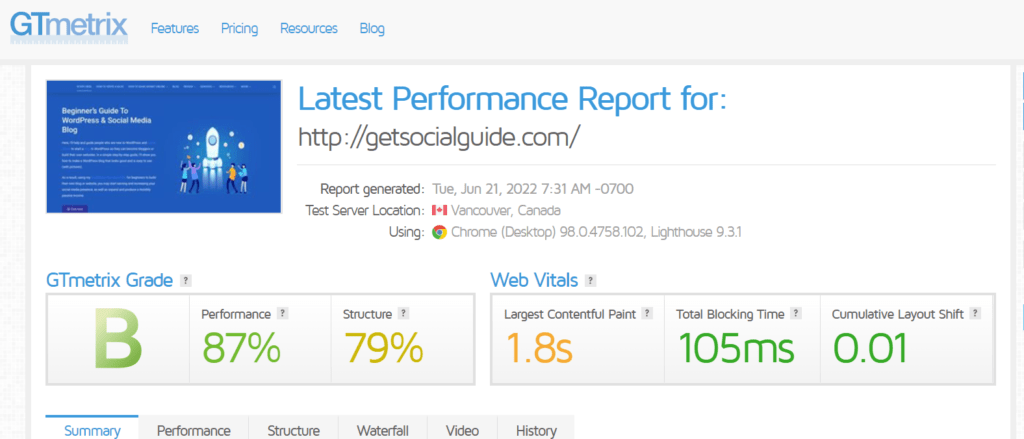
BOOM! After switching to litespeedtech, the loading time has significantly improved, as seen by a 95 percent reduction. Hold on, but don’t just take my word for it; here are some of the most recent REAL reviews that have been written about litespeedtech.

Follow these steps to purchase hosting for your first blog:
1. You can acquire litespeedtech by Following This Unique Link. The $1 Trial Will Last For 30 Days
2. Choose a plan that is appropriate for both your financial situation and the number of blogs you intend to maintain.
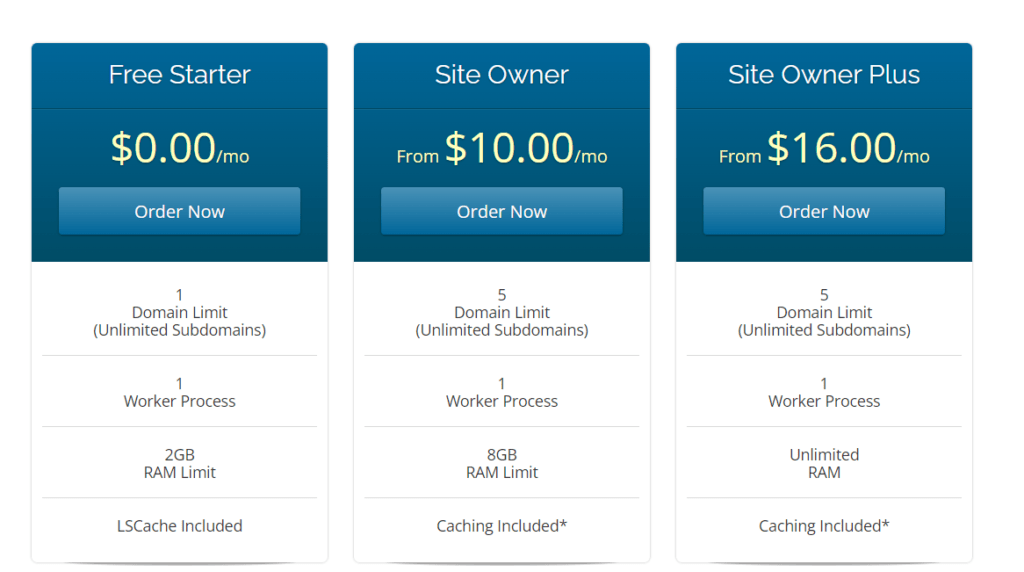
I strongly suggest that you sign up for a basic or beginner plan because it will be within your price range and the Best Part? You will receive a one dollar trial for the first month. So click this link to start your one dollar trial for the first month.
Unprofessional Website Design
Your website/blog must have something different or unique to stand out from the crowd, or it must look beautiful! First impressions are important, and with so many websites/blogs to pick from, it’s simple to go on to the next one. Your theme should reflect your niche, services, and, most importantly, your personality, whether it’s for your website, blog, or social media. Your theme must effectively communicate your brand’s fundamental values and message to your visitors in order to be effective. If you’re writing a Lifestyle blog, for example, pick a theme that matches that. Make sure your header, photos, and fonts connect to children and moms if you’re a parenting blogger.
Here are some best practices to improve your blog design.
High Readability
When people hear “blog design,” they usually think of colours, drawings, branding, and user experience. Having those characteristics in a blog’s design is critical. Your typography, on the other hand, is more significant. At the end of the day, blogs are just venues for people to read text. The blog will fail if the content is difficult to read. Making your blog content easy to read isn’t rocket science. The size of your typeface should be between 15 and 18 pixels.
Maintain Consistent Design
Your blog, like any other website, should have a consistent design. With a consistent design, your blog will be easy to recall. This is critical because there are so many blogs out there. The colour “Green” is used in the Backlinko website, for example.
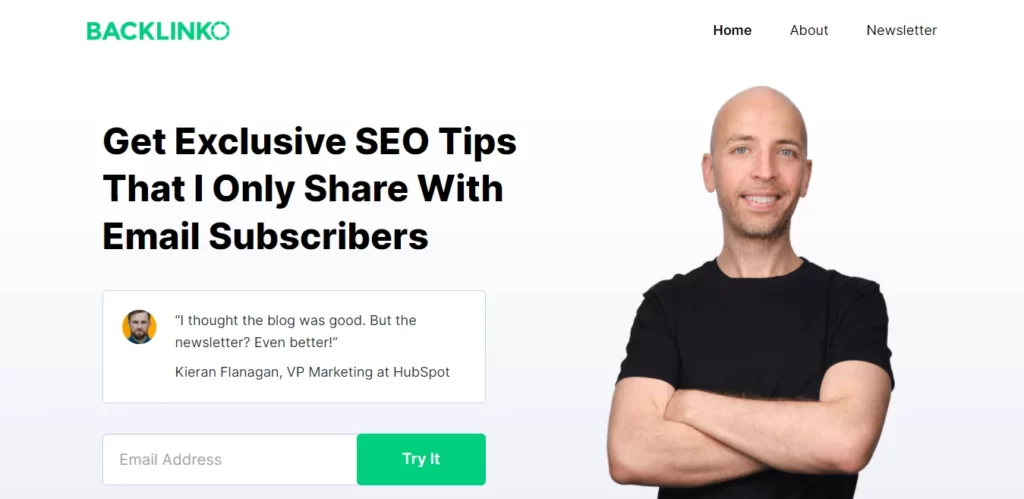
As a result, if they utilised stock photographs for some pieces and artwork for others, their blog style would be inconsistent. Their blog appears to be highly professional because the design is consistent. In fact, even without the text, the design of the blog could tell you which one you were on.
Use Graphics & Images
The layout of individual pages is just one facet of blog design. The appearance of your content can be affected by the format, layout, and even the copy itself. If you want to make your information interesting to read for a wider audience, I suggest peppering it with pictures and other visuals all the way through. The following are some examples of how you might modify the style of your blog in order to make it look more appealing and distinctive:
- Blog feed
- Feature Images
- WordPress theme
- Font and typography
Not investing money into their blogs
Amateur bloggers are hesitant in investing money into their blogs because they don’t want to put money into something that’s not making them money right away. But the truth is, in order to make money, you have to spend money. If you want to eventually turn your blog into an online business, you have to treat it like one. That includes investing money in the proper blogging tools that will you earn even more in the long run. This is how successful bloggers turned their ordinary blogs into successes.
Building backlinks like a ninja
Most inexperienced bloggers believe that gaining backlinks is the sole efficient technique to rank blogs in Google SERPs. I agree with the statement. But wait a second! Building tonnes of backlinks to a newly created blog with just a couple of posts! That’s ridiculous. However, it is the most typical error that many beginning bloggers make.
All you have to do during the first 6 months of your site is create amazing content, establish 2-3 dofollow backlinks, and earn 20-50 nofollow comment links by frequently commenting. Excessive blog promotion for backlink reasons leads in a significant temporary increase in ranks. However, it will be washed away after a week, if not a month. Then you must look for recuperation guides once more. Once you have 70 – 100 unique high-quality blog entries, you can begin NATURALLY acquiring backlinks through guest blogging. Until then, keep guest posting to a bare minimum.
Robotic approach
What are your thoughts on your readers? Are they machines? Most inexperienced bloggers approach their readers like robots. They do not employ personal pronouns like “you” or “I.” Always keep in mind that the two people in the blog post are the writer and the reader, which is you and me.
An author can tap into the readers’ mental schema by employing a personalistic approach. This type of language has a major beneficial impact and aids in the development of an abstract relationship with your readers.
This strategy encourages your readers to return to your blog.
As a beginning blogger, practically everyone only publishes their content, their blog entries. They consider twice before sharing the blog content of other bloggers. Why? Are they self-centered? Nope. A human being’s natural nature is to be selfish to some level. That is not the case. As I have stated in my blog, the GIVE AND TAKE philosophy is really effective. To create relationships at the start of your blogging career, you must post insightful comments on other popular sites and share other popular stuff in your niche.
Follow the 70-30 guideline in the early stages of your blogging career. 70% of what you share should be of other bloggers with whom you want to create a relationship. Follow the 50-50 rule for the remainder of your blogging career.
New bloggers believe that producing high-quality content is sufficient. They are uninterested in social media. But wait a second. You’ve created some fantastic content. However, how will your readers learn about your fantastic content? To alert your target audience about your fantastic material, share your most recent blog entries on social media and receive some exposure. This will drive a lot of visitors to your blog.
Depending on the quality of your material, some of this traffic will be converted into readers. Remember, “Nobody Will Come to Your New Blog and Read Your Blog Posts Themselves; You Must Reach Them.” There is no need to reach out to your readers once they have been devoted.
Ignoring list building
List building is one of the most effective ways to track your dedicated readership. If done effectively, the traffic from lists and e-mail marketing is incomparable to any other type of traffic. Even if Google penalises you, e-mail marketing can still generate a significant quantity of traffic and income. List building on a blog should be practised from the start. Collecting your readers’ e-mail addresses as soon as feasible aids in the development of a strong list and, as a result, traffic. For the first four months of my blog, I didn’t create any form of list. Later on, I discovered the value of list building and began.
No passion in niche
If you’re solely blogging for money, I’m sure you lack enthusiasm. Bloggers who are passionate about their craft always blog as a hobby and for enjoyment. The major goal of an amateur blogger should be to create exceptional content and establish a large readership. Making money early in your blogging career is a sure way to fail.
Many bloggers hide their true passion and instead focus on a successful blogging topic. The second priority should be to find a successful blogging niche. Even in a very profitable field, you cannot make money without passion. Choosing a specialty in which you have a strong interest is therefore critical.
Don’t mix up conversational and generic approach
In all of my writing-related blog entries, I constantly emphasise that a conversational approach is particularly beneficial when writing a blog post. However, if you’ve recently tried to take a conversational approach to writing, you may have run into the issue of confusing the conversational method with the general approach. In some areas, you refer to your readers as “you,” but in others, you may mistakenly refer to them as “reader.”
You may not do it on purpose. Combining these two tactics is equivalent to speaking with a close friend one day and a stranger the next! I don’t have to tell you how awkward it is to be a reader. Stick to one method of addressing the readers.
Conveying the message again and again
I admit that this is a horrible habit of mine. Web readers have the ability to read the text repeatedly, so you do not need to repeat it. You may feel that the points you mentioned in the article are underemphasized at times. It tempts you to reiterate your position. You lose value by stating the same thing over and over. Advice is only acceptable once. There are other errors that you may be aware of, such as mixing up the present, past, and future tenses.
Alternatively, singulars and plurals. Grammatical errors that are frequently made include the use of fewer and less, bought or brought, and so on. These kinds of petty writing errors can wreak havoc on the substance of your blog. I hope you enjoyed and learned something from this essay. Please like and comment.
Jumping straight into writing
Amateur bloggers typically launch right into writing and publishing content shortly after launching their blogs, skipping over the steps that are required to set up and maintain a blog properly. These things include of things like registering an account with Google Analytics, publishing a sitemap, and creating automatic backups of their websites, among other things.
Before you begin producing posts, you need to ensure that the correct foundation has been laid. After getting your blog up and running, you need to ensure that you do these significant next actions in order to put yourself on the correct track toward success.
Not focusing on quality
One of the most common and serious errors that novice bloggers make is concentrating on quantity rather than quality of their writing. This applies to every single facet of running a blog. Amateur bloggers have a tendency to do whatever it takes to obtain big numbers, even if it means sacrificing quality, whether it’s building their following on social networking platforms or getting traffic to their blogs or composing blog entries. What difference does it make if you have 100,000 followers if only 5,000 of them interact with the posts you make?
Who cares if you have 1,000 views to your blog each day if only 50 of those people genuinely care about the substance of your site or would share the posts they read? Why waste time writing 10 articles that are so poorly written that they will only turn off potential readers? Do you understand? You should never lose sight of the importance of quality, since this is the one factor that will truly contribute to the expansion of your site.
Not learning about SEO
The SEO of your blog will determine whether or not your blog or posts are seen on search engines such as Google. Many inexperienced bloggers don’t know how to use it well or don’t use it at all, which is why their traffic growth has slowed. Learning effective SEO tactics will aid you in locating and employing the most appropriate keywords for your posts, hence increasing your organic blog traffic. To achieve a high Google ranking, conduct keyword research and use on-page and off-page SEO strategies.
Not posting consistently
A good blog involves hard work and dedication, which means you must update on a regular basis. Many amateur bloggers are unreliable when it comes to releasing new content. They occasionally go on a posting binge, only to have their next post appear a month later. There is no ideal interval between postings, but you should establish a consistent routine so that your loyal readers know when to expect your next one. Make sure you’re consistent and updating on a regular basis, whether it’s twice a week, once a week, or twice a month, because you don’t want to disappoint your readers. After all, you want people to visit your blog again.
Not connecting with other bloggers
Many inexperienced bloggers are unaware of the value of joining a blogging community. You may cooperate, learn from, and help one other when you’re not feeling driven by meeting other amateur or even professional bloggers in your niche. That is what makes the blogging world so fascinating. You don’t have to go through this path alone since there will always be others like you to connect with. Some of the most successful bloggers have massive followings, and you should aim to build your own.
Trying to make money without a reputation
Amateur bloggers typically try to make money as soon as they start their blogs, but the problem is that they don’t yet have a solid enough reputation, which is why they aren’t receiving any sales. Building a positive reputation takes time. Writing amazing posts, responding to comments, and interacting with your audience on social media are all things you can do over time. It also helps to be honest, because people who they trust tend to buy more from them. So don’t be concerned if you’re not getting a lot of sales. Concentrate on establishing a positive reputation, and your revenue will increase over time. Check out my advice on how to make extra money from your blog to learn more.
Spamming their blogs with Google ads
Yes, Google Adsense and other ad partnerships are a great way to supplement your revenue, but flooding your website with them will harm your blog. It simply isn’t worth it. You may boost the number of ad clicks by putting your advertising in more places, but you’ll also greatly raise the likelihood that your readers will never return to your site. Ads irritate people (including yourself), which is why many employ ad-blocking software in their browsers.
It’s simply not logical to lose readers in order to get an extra 50 cents at the end of the day. Ramsay of Blog Tyrant even advises against using advertisements on your blog. Keep adverts to a bare minimum and avoid shoving them in your readers’ faces. It will be appreciated by your readers.
Not Promoting the Content

Sharing content on social media is a great tool. It has the capability of reaching billions of people in a matter of seconds. Brands are now recognising the importance of focusing on how they employ it. It’s pointless to upload information on social media channels if you’re not going to promote it. It’s not about spamming your followers with useless posts; it’s about informing them what they’re interested in and what you want to share with them.
Tips for effective content promotion
1) Make an editing schedule.
2) Use influencers to your advantage
3) Be reliable.
4) Use data insights to pinpoint target viewers for your content.
5) Provide incentives. If you want to use social media to increase traffic to your site. Let’s go over where and how you should use these channels and approaches.
(1) Facebook
Facebook is on the rise! Almost no one is unaffected by this massive, all-pervasive media. It’s a mash-up of every type of material available on the internet nowadays. This multibillion-dollar social networking service serves as both an individual and a commercial platform. It links you to your friends, family, coworkers, businesses, and new individuals all across the world. You can contribute your views, ideas, and blog posts here, and they will be seen by a huge number of people right away.
(2) Twitter
Twitter, like Facebook, has a diverse user base. It allows you to post links and images with your followers that convey relevant concepts inside a set number of characters. As a result, your followers can repost the link to their own followers, resulting in a chain of views and reviews. These retweets increase the reach of both your tweet and your blog.
(3) Instagram
Because Instagram is primarily a visual platform, it has a psychological effect on viewers, causing them to become engrossed in the post. Pictures or videos can be used as visualisations. You can also promote your text-based blog here by including a link in your bio and relevant views in your postings.
(4) LinkedIn
It’s a platform with a low number of views compared to other platforms, but a high conversion rate. Because firms and their employees have easy access. LinkedIn should be your first choice on the list of social network marketing sites if your blog is business-focused or aimed at a professional audience. However, before you share on social media, there are a few things you should know:
- Don’t try to hit every social media platform at once.
- Take a look at the social media statistics.
- Post on a regular basis for a month or two and see what happens.
- Make new acquaintances.
- Don’t waste your time on social media.
Blog Design Is Poor
If you choose free themes, you are architecting your own destruction, which is one of the biggest mistakes I’ve ever made. Why am I making this statement? I mention this because, like any rookie, I used free themes in 2018 and had my niche-based blog hacked multiple times as a result. I understand that as a rookie, you don’t have the financial means to invest in premium themes and plugins, so you utilise free themes, which makes your blog look ugly. However, if you’re just starting out with your blog,
I recommend setting aside money for premium themes because most free themes aren’t optimised for SEO, don’t provide the speed you want, and are difficult to adjust. In his essay on the 200 ranking variables, Brian Dean also stated that if your blog is not optimised for SEO and does not provide a user-friendly interface, it will be difficult for Google to rank your blog. If you’re still not convinced that premium themes will benefit you, consider the following additional reasons for investing in premium themes:
- Premium themes appear to be extremely professional, and if you are a blogger who is using any free themes, your blog may not appear to be very appealing. Always keep in mind that your site appears to play a critical role in your blog’s success.
- Premium themes are updated frequently, and if you have any issues about theme modification, you can contact their support team, who will help you.
- Premium themes are also mobile-friendly and SEO-optimized.
- Free themes aren’t always easy to alter, but premium themes come with a host of options for making your blog look professional.
I think now you understand why pro bloggers use premium themes instead of free. If you are confused to find premium themes, Let me help you, There so many premium themes which you can use, but if you are confused to find a good one then,
I’ve some themes which I use:
GeneratePress: GeneratePress is the theme I’m using on this site, and it’s the greatest lightweight theme I’ve ever used. It has a lot of options that you can use to customise your blog, and it’s completely SEO optimised and mobile friendly. If you want a premium theme that has everything, this is the one to choose.
Astra: is similar to GeneratePress, but it has more functionality. I use it on my affiliate blog, and it works great with Elementor.
Elegant Themes:Elegant Themes is a popular theme, and if you buy it, you’ll get a lot of other themes and plugins (Include Divi, Boom, and Monarch). If you’re searching for a collection of themes to use on numerous blogs, they’re the ones to go with. I’ve used them before, and they offer live support to help you solve your problems.
Copying Content Without Giving Credit
Many bloggers believe that generating content is difficult, so they duplicate other bloggers’ content with minor changes and without their permission. As a result, they do not rank on Google because the information they copied is already rated on Google, and the stuff they uploaded is plagiarised. I believe the question “What is Plagiarism?” is now arising in your mind. Plagiarism is frowned upon by Google, and if you’re guilty of it, you’re committing SEO suicide. So, if you’re doing this error, recognise it and strive to generate content on your own.
When you develop content on your own, you can add a personal touch to it that you can’t get by copying other blogs. If you want to be a successful blogger, you must create your own content. Also, if you take a sentence or a picture from a site, try to give them credit so that you may have a positive relationship with them. I made the same error when I first started out, but I gradually realised that it was not helping me in the long run.
Not Writing Consistently
This is one of the mistakes that you should avoid right now, because every new blogger only writes a few blog posts and then waits a few months for results, at which point they conclude that the blog is doomed. However, this is completely incorrect, because you cannot determine the future of any blog by writing just a few blog posts. If you want to see results, you should invest more effort into generating content and not stop after a few pieces.
Continue to write regularly and focus on keyword research to have your site noticed by Google in a few months. I understand that you may have many challenges while writing at first, and that you may become stuck at times. However, if you write an article on a regular basis, it will become a habit, and you will be able to quickly create material without difficulty.
What if I don’t know how to write a good blog post then?
If you are having trouble writing a decent blog post, then you should definitely follow these methods, which will help you make a fantastic blog post more quickly:
You can locate topics for your blog post on websites such as Quora or Reddit, and when you’ve done some keyword research surrounding that topic, you can find some good keywords to include in your blog post (For finding keywords you can use a tool like SEMrush). Following that, conduct an analysis of the “Top 10 articles connected to that,” and then draught an outline based on what you’ve learned. You are able to begin writing your blog post once you have created an outline for it, and you can continue to use the same exact method in order to produce content that is regularly of high quality.
I believe that everything has been clarified for you at this point, so let’s proceed to the next mistake that a newcomer commits.
Ignore List Building
Ignoring list building was one of the mistakes I did when I first started my blog, and after five months, I began list building. Now, I understand that list building helps a lot to deliver quality visitors to your blog, which creates cash for you. If you’ve already established your blog and are debating whether or not to start creating a list, I strongly advise you to do so because email list development is one of the most effective ways to attract loyal readers.
How can email list building help you?
You already know that Google changes their algorithm on a daily basis, and it’s possible that something went wrong and you got a penalty on your blog, but at that point, you may use email marketing to get visitors and money.
Which email marketing software should you use?
There are several email marketing tools available on the market, but I recommend Convertkit.
Build Backlinks Like Crazy
Are backlinks important for new bloggers? If you’re a novice blogger, your answer will be “Yes,” and I agree. However, newbie bloggers have the notion that in order to rank a new site, you need to build a lot of backlinks right away. But this is a flawed method, because every novice blogger simply creates a new blog, writes a few times, and then begins link building on the second day, which is why I believe many newbie bloggers fail to see results. I made the same error in the beginning, and despite putting a lot of effort into it, I didn’t see any results, so if you’re doing the same mistake, I strongly advise you to quit immediately.
So when should you start doing link building?
I propose that you devote more time and effort to developing content in the beginning, as well as building some no-follow backlinks by commenting on other people’s blogs, because aggressive blog promotion early on may harm your blog/website. So, once you have 30 – 100 entries on your site, you can begin link building. You can conduct a Guest Post, Broken Link Building, or Blogger Outreach to generate high-quality relevant backlinks.
Isn’t it true that the misery of every inexperienced blogger is a lack of traffic? Why aren’t they getting any foot traffic? Because they don’t utilise all traffic sources, most novice bloggers rely on organic traffic. However, they are unaware that they may quickly produce the appropriate amount of visitors via social media. I used social media traffic when I first launched this blog, which helped me improve my ranking. If you only have one source of traffic, I recommend that you cease doing so and start sharing your post on social media. You may also be aware that Google loves social signals in an indirect way.

As you can see from the above CognitiveSEO images, the website that ranks higher in the search results has more social signals.

Are you reblogging the content of other bloggers in your niche? The majority of beginner bloggers will respond that they do not share the content of other bloggers.
Why? Are they self-centered? NO, humans have an inherent predisposition to be selfish to some level. If you ask me this question, I’d say yes, since by sharing other bloggers’ content, we build a strong relationship with them that can benefit us in the future. You must follow the give and take philosophy in blogging or whatever business you are in, and if you follow this principle properly and share other bloggers’ work, your content will be automatically shared by every blogger in your field. So, if you’re doing the same error, I strongly advise you to quit right now because it’s not helping you.
Trying to do everything at once
You do a lot of research when you first start blogging. That means you’ll have to study a lot of articles and books to figure out what you need to do. The truth is that if you ask five people what they think they should do first, you can get five different replies. One person may advise you to start building an email list right away, while another may advise you to design a product to sell.
Another will advise avoiding email in favour of affiliate marketing. Then you read another article that said you needed to be on Pinterest and ignore SEO. This can make an inexperienced blogger feel obligated to complete everything right now. You don’t have it. The truth is that in your first year of blogging, you will have a lot to learn. And there’s no way you’ll be able to do everything. It isn’t possible. Create a plan for your blogging journey rather than trying to do everything at once.
Putting all your traffic eggs into one basket
You want to drive traffic to your blog once it’s set up and content has been added. Who doesn’t, after all? With good reason, most new bloggers will begin by using Pinterest. It’s the simplest technique to get your site’s first traffic bursts. But what if the flow of traffic begins to slow? It causes anxiety. Rather than focusing just on one platform, make sure to understand good SEO, create an email list, and use social media to drive visitors. When an algorithm is changed, several traffic streams ensure smoother flow and less panic.
Not diversifying your income streams
You may have started your blog with the intention of making money. A blog can be monetized in a variety of ways, including ad networks, affiliate marketing, and even selling your own products. The issue arises when you start with one and utilise it exclusively. What happens if you rely on an ad network for all of your revenue and then your traffic drops? Your income reduces as well. It can also happen if you’re a member of an affiliate programme that abruptly changes its conditions or shuts down. You have a financial loss. Ensure that your income streams are evenly distributed so that they can withstand the ebbs and flows of traffic, conversions, and changes in terms and payouts.
Being unwilling to invest in your site
It’s wonderful to have something for nothing! Who doesn’t enjoy a good bargain or finding a method to acquire things for free? Until I’m not, I’m right there with you. You may get free plugins, apps, and articles from the internet. Are they, however, worthwhile? Are you obtaining everything you require from them? Someone seems to ask me about resources to learn different parts of blogging every day.
They ask for something free when I tell them about the courses or books I know about since they don’t want to pay. However, there comes a point when you must be willing to pay in order to learn. Experts write books and courses to assist others. They’ve learned what to do and what not to do, and following their advice can save you a lot of time and money. Consider the doctor you visit. Do you think they’d be an expert if they hadn’t put money into their education? No way; that’s ridiculous. While that is an extreme scenario, it is understandable. The doctor invested time and effort into learning how to diagnose and assist patients.
A first impression is something you never get a second chance to make. That’s probably something you’ve heard before. That is correct. You get an instant vibe when you meet someone. One day, you might run into a man who was rude to you. You may believe he is a jerk. However, they had recently lost their employment, their car had broken down, and his girlfriend had broken up with him.
He was having a very bad day. Your first impression remains, and it is difficult to overcome. This is also true of your website. When visitors arrive on your site for the first time, they immediately determine whether or not to return. If they don’t like it, they’ll go right away, never to return. You must make an investment in the appearance of your website. It must be professional and efficiently direct the reader to the information they seek. The following are some things to keep in mind when designing a website:
- Navigation is simple. In less than three clicks, the menu should bring the reader to the material they wish to read. Make sure they don’t have to look for what they want to read.
- The scheme of colours. I once went to a website that had a neon green background with white writing. Needless to say, I walked away and never looked back. The colours you choose must make sense. Make sure the colours contrast and the backdrops allow you to read every word easily.
- Configuration for mobile devices. The majority of the themes will be mobile-friendly. That means the appearance of your site will change to make it easier for mobile users to read and navigate. Readers will not visit your website if it does not perform well on mobile. With more than 80% of users increasingly accessing websites through their mobile devices, your theme must perform well.
Don’t be stingy with your theme. Free themes can be useful, but they aren’t always what they seem. Invest in a good theme like Avada or Genesis to ensure that your site loads quickly and offers the correct impression to your visitors.
Trying too hard
There is a distinction to be made between working hard and overworking. When it comes to the novice blogger, you might be pushing yourself too hard. You may notice that others are creating three to four articles every week, therefore you want to produce five. You decide to pin 40 items per day because they may only pin 20 per day. You believe it will be better if you do ten topics for your niche than they do three. Stop putting so much effort into it right now. Take the time to write what important and where your efforts will be most effective.
You can’t properly work on five different social media networks. As a result, don’t do it. Instead, look for the 1–2 on which your reader spends the most time. My readers, for example, do not use TikTok. It’s pointless for me to be there. As a result, I’m not. Concentrate on the aspects of your life that you have control over, such as creating strong, high-quality material. Even if it means writing one article per week instead of two, so be it. Don’t put too much pressure on yourself.
Comparing themselves to others
“Comparison is the thief of joy,” is a statement I like to share with bloggers. That is correct. When you compare yourself to others, you miss out on the opportunity to appreciate your achievements. After six months of blogging, you might be earning $500 per month, whilst someone else might be earning $1,000 per month. Why are you so concerned that others earn more than you? You can’t do it. Why aren’t you happy that you’re making money? That’s a terrific thing you’ve done! Stop comparing yourself to others who came before or behind you and instead concentrate on yourself!
Not Having a Monetisation Strategy
How do you plan to monetize your site once it’s up and running? There is no correct answer, but knowing how you expect to make money from your blog will help you develop a better approach for achieving your objectives. To be honest, I had no idea how my blog would create any cash when I started it, which meant I wasn’t working towards anything! I was scribbling mindlessly with no clear vision in sight, which slowed down work significantly. This is yet another common beginner blogging blunder, therefore I’ve included several monetisation ideas below to help you get started:
- Affiliate links
- Sponsored posts/ paid for advertorials
- Advertising
- Selling your own products, courses, services
Neglecting a Mailing List
Although email list creation is sometimes overlooked by amateur bloggers in favour of other activities such as creating a social media following, it will eventually become one of your most significant assets in your online business. Unlike social media platforms, which operate on very mysterious algorithms, an email list is something YOU OWN and CONTROL. It should also be linked to your revenue strategy, as your subscribers are likely to be warm leads who are interested in the information you’re producing. In other words, when it comes to launching your own (digital) products, they are the “low hanging fruit.” Having a strong email list is also beneficial for promoting blog content, disseminating affiliate links, and informing your audience about forthcoming launches!
Not finding the right person to follow
When you look at numerous blogs these days, you’ll see that they all have a niche and a blogging category. They offer what they consider to be excellent recommendations for learning how to blog. But do they have any idea what they’re doing? How long has it been since they started blogging? You wouldn’t hire a plumber who hasn’t snaked a drain before, right?
Why would you want to learn about blogging from someone who has never actually blogged? You wouldn’t do it. Countless blogging experts are available to assist you at any time. You must ensure that you locate your target. On the other hand, don’t try to follow the advice of eight experts. You could get eight different responses, leaving you even more perplexed! Concentrate on identifying two to four experts who will serve as your “go-to” individuals for all things blogging. It enables you to learn in a much more straightforward manner.
Not having a clearly defined niche
Readers come to your site to learn about your niche, or blogging topic. It is perplexing to them if you blog about too many unconnected topics. A lifestyle blog is a popular form of blog that many people develop. A lifestyle blog is a compilation of several types of content that may or may not be related to one another. It’s one of the most common blunders made by inexperienced bloggers.
Fashion, travel, parenthood, and budgeting, for example, might all be topics of your lifestyle blog. Are you a fashion or parenting expert? Are you sending them emails about topics they may not desire if they sign up for your list? This is not a good method to build a website. Instead, choose a major niche and then develop sub-topics that will benefit the reader. They must make sense and find solutions to their challenges. Make sure you devote time to developing a niche that makes sense.
Not Linking To Others
You already know that blogging is based on the GIVE and TAKE principle; if you don’t link to others, you’ll have a lower chance of receiving a backlink in return. I made the error of not linking to other bloggers in the past, and as a result, when I reached out to them, I frequently received negative responses, and I want to warn you not to make the same mistake I did. If you start linking to other bloggers’ content, it will help you rank higher, and by linking to other well-known blogs, you will be able to quickly establish a relationship with them.
Scared To Invest In Plugins/Tools
This is a common blunder made by inexperienced bloggers. Even when I first started blogging, I was hesitant to spend money on plugins, tools, and education. However, through time, I’ve come to realise that if I don’t spend money on the things that are important, I won’t be a successful blogger. And, when I began to invest money in my education, plugins, and tools, I noticed a J-curve in my life as well as on my blog. So, if you want to see your business develop, stop making this error and start investing in the things that are vital for your business and can help you grow it 30 times. If you’re just getting started with your blog, set aside money for tools and plugins that will aid in your success. You’re undecided about which tool or plugin to invest in.
Then here the list below:
- Grammarly (Online Proofreading Tool)
- Thrive Architect (Plugin To Design Your Blog)
- Short Pixel (Optimize Your Blog Images)
- SEMrush (Best All In One SEO tool)
These are the tools/plugins in which you can invest. Every business requires some investment to see results quickly. If you treat blogging as a business and put your money in it, you will see results much faster than other bloggers who are afraid to invest money in their blogs.
Focus On Earning Only
That is the primary reason why 90% of bloggers fail to make a successful career out of blogging. Because they expect money to start flowing into their bank account right away. Everything takes time; on average, it takes 6–12 months for a blog to earn its first money if you put in constant effort. Mine took me about 7 months to create. In addition, newcomers are more concerned with making money than with delivering value without expecting anything in return. First and foremost, you should remember that you should use your blog to help others; money is the second item that will come with your labour over time.
Focus On Quantity Over Quality
Creating new blog entries on a regular basis isn’t going to help you; it seems like you’re using a writing machine. Concentrate on producing high-quality material rather than quantity. Don’t get caught up in the numbers; instead, focus on the quality. I’ve seen fresh amateur blogs where rookies simply finish their posts in 500–800 words and publish the identical things on a daily basis. They believe that by publishing more posts, their blog will become an authority blog. But that isn’t the point of the game; there are already a slew of blog articles on the same subject as yours. How can you get on the first page of Google? This is where the quality of your material comes into play; does it meet the searcher’s aim and is it truly useful?
Now It’s Your Turn
In this piece, I discussed several common blunders that novice bloggers make while starting a new site. If you’re making any of the mistakes on this list, I recommend that you stop doing it right now because it won’t help you expand your site. So that’s it from my end; I hope you learned something from this post because I tried to point out some of the common blunders that beginner bloggers make. If you think of any other errors that I haven’t included in this list, please let me know in the comments section below.
Using difficult-to-read fonts
Nothing is more frustrating than reading a blog with typefaces that are both difficult and unpleasant to read. This is especially common among amateur bloggers who are attempting to stand apart. Most novels utilise similar fonts for a reason: they’ve been demonstrated to be easy and pleasurable to read. Don’t put your readers’ accessibility at risk only to stand out. This article will show you how to choose the perfect font for your site.
Being scared to try new things
Last but not least, a blogging blunder is one that occurs far too frequently and inhibits bloggers from achieving success. Bloggers who are new to the game are afraid of failing. It prevents them from attempting new ventures such as podcasting, posting YouTube videos, or even offering online courses. They will not do anything that makes them uncomfortable since they believe it is beyond their current skills.
They don’t comprehend that they will fail at some time, and that failing is good because the only way to progress is to step outside of one’s comfort zone and try new things. Thank you for taking the time to read this post; I hope it has helped you recognise and correct some of your own inexperienced blogging errors!
Using Nulled or Cracked Tools

Hacked versions of any software product are referred to as nulled or cracked tools. These are premium tools that have been unlawfully hacked and are being utilised for free, but they contain spyware that can be damaging to cybersecurity. Well, if you’re a rookie, I wouldn’t recommend going for this free hacked premium items at low prices. It may appear lucrative, but it is only a trap. You will not receive any brand updates from them, and you may become a victim of cybersecurity with malicious programmes. It will have a negative impact on your website. These are the most significant dangers of adopting a Nulled or Hacked theme —
- Blacklisting of domains
- There is no customer service.
- Codes that are malicious
- Deletion of an Adsense account
- There have been no updates.
- Issues with incompatibility and a drop in career.
Q1. How much can a beginner blogger earn?
It is entirely dependent on a variety of factors. However, if one works in the right path, one can easily earn 0 – 1000$ every month.
Q2. Is blogger good for beginners?
It’s an excellent place to start if you’re just getting started and want to learn. However, for the best results, WordPress is the ideal platform.
Q3. How do I start a blog with no experience?
If you have no prior experience, simply search for “blogging” on Google and watch related YouTube videos, then put what you’ve learned into practise. That is how you will progressively learn.
Q4. What is a hobby blogger?
A hobby blogger, as the name implies, is simply sharing his experiences with the public for the sake of interest and pastime.
Final Words – Amateur Bloggers Mistakes
Guys, most inexperienced bloggers make multiple mistakes at first, but you should be aware of the above-mentioned most typical blogging blunders and should follow pro-bloggers’ advice for better outcomes and assistance. Make the most of the experience of pro-bloggers to avoid repeating the same mistakes. Follow some of the most reputable and well-respected blogs in your niche, stay up to date on them, and leave suitable comments to help create the community. With constant efforts, you’ll undoubtedly become an approved pro-blogger by avoiding these awful blunders that every amateur Blogger Makes To Become Pro. I hope you found this article helpful and that you found the answers you were looking for. Please share this with your friends and leave a comment on your questions. I’d be delighted to solve them.
These, in my opinion, are some of the common blunders made by inexperienced bloggers. As a novice blogger, you should be aware of the most common blogging errors that many professional bloggers identify on their blogs. Simply put, you must take use of their invaluable experience. Follow some of the most influential blogs in your niche, read them on a daily basis, post smart comments, and lastly, form relationships with them. You can easily become an authoritative blogger by avoiding the common blunders made by inexperienced bloggers.



